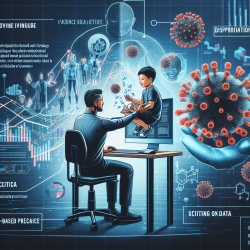Phelan-McDermid Syndrome (PMS) is a complex neurodevelopmental disorder caused by deletions or mutations in the SHANK3 gene. This condition presents a wide array of developmental, cognitive, and behavioral challenges. Recent research from the Developmental Synaptopathies Consortium provides significant insights into the genotype-phenotype correlations within PMS, offering valuable information for practitioners aiming to enhance their therapeutic approaches.
Key Findings from Recent Research
The study analyzed a cohort of 170 individuals with PMS, categorizing them based on their genetic profiles: Class I deletions (SHANK3 only or with non-contributory genes), Class II deletions (larger deletions involving other genes), and sequence variants. This research represents the largest and most rigorous analysis of its kind, providing robust data on how different genetic alterations influence clinical outcomes.
- Developmental Milestones: Individuals with Class I deletions or sequence variants generally achieved developmental milestones earlier and were more likely to regress compared to those with Class II deletions.
- Cognitive Abilities: The study found that those with Class II deletions had significantly lower cognitive abilities compared to those with Class I deletions or sequence variants.
- Medical Features: Renal abnormalities were predominantly observed in individuals with Class II deletions, suggesting these features are not due to SHANK3 haploinsufficiency alone.
- Psychiatric Diagnoses: Individuals with Class I deletions or sequence variants were more likely to have psychiatric conditions such as bipolar disorder and schizophrenia.
Implications for Practice
The findings from this study underscore the importance of personalized approaches in treating PMS. By understanding the specific genetic underpinnings of each case, practitioners can tailor their interventions more effectively. Here are some practical applications:
- Early Intervention: For patients with Class I deletions or sequence variants, early intervention programs focusing on language and cognitive development could be particularly beneficial due to their potential for skill regression.
- Comprehensive Assessments: Regular assessments should include evaluations for psychiatric symptoms, especially in those with Class I genetic profiles, to address potential mental health issues proactively.
- Medical Monitoring: Close monitoring for renal and other medical abnormalities is crucial for individuals with Class II deletions to manage potential complications effectively.
Encouraging Further Research
This study highlights areas where further research could deepen our understanding of PMS. Exploring the role of other genes within the affected chromosomal region could lead to new insights into phenotype variations and therapeutic targets. Additionally, longitudinal studies tracking developmental trajectories could provide valuable data on how interventions influence long-term outcomes.
Practitioners are encouraged to stay informed about ongoing research and consider participating in studies that contribute to a broader understanding of PMS. Collaboration between researchers and clinicians is vital for advancing treatment strategies and improving quality of life for individuals with PMS.
To read the original research paper, please follow this link: Strong evidence for genotype–phenotype correlations in Phelan-McDermid syndrome: results from the developmental synaptopathies consortium.










